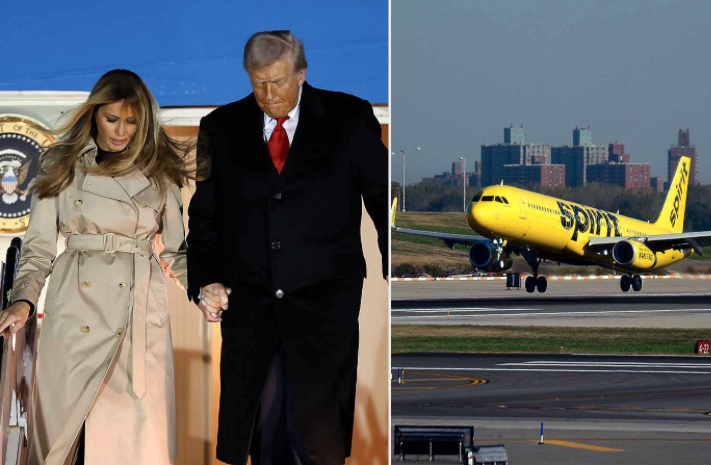Frigid Arctic air is set to sweep across the United States this weekend and into early next week, bringing below-freezing temperatures to nearly every state and creating bone-chilling conditions for outdoor events, including the inauguration of President-elect Donald J. Trump on Monday. Forecasters are warning of a significant cold spell that will plunge temperatures well below seasonal averages for much of the country.
Alex Lamers, a meteorologist with the National Weather Service’s Weather Prediction Center, said the Arctic air mass will push southward through Canada and into the U.S., starting over the Upper Midwest on Saturday. “The cold air is coming directly from the Arctic,” Lamers explained, adding that the freezing temperatures will gradually expand southward and eastward by Monday, affecting almost every state with abnormally cold conditions for January.
By the time the cold front settles, daytime highs in many areas will range from 20 to 40 degrees below average, stretching from the Rocky Mountains to the Appalachians. According to Lamers, “If you count the summits of the volcanoes in Hawaii, at least a part of every state should be below freezing Monday morning.” He estimates that more than 250 million people across the country will experience freezing temperatures at some point over the next week.
This Arctic blast is expected to bring some of the coldest weather of the season for many regions. In Chicago, for example, wind chills are predicted to dip to 20 below zero on Monday. While such frigid conditions are not unheard of in the city, they underline the severity of the cold air mass. Forecasters say the cold will peak in intensity Monday and Monday night across much of the central and northern United States.
Temperatures are expected to plunge after sundown Saturday, also raising the risk that melting snow will refreeze, turning roadways treacherous. https://t.co/paRNO14j88
— NBC10 Boston (@NBC10Boston) January 12, 2025
As the Arctic air plunges south, there is also a heightened potential for rare winter precipitation in southern states. Although forecasters are still monitoring this possibility, the cold conditions could bring snow or ice to areas unaccustomed to significant winter weather, particularly along the Gulf Coast. However, by Thursday, temperatures are expected to begin moderating in most areas, with conditions returning closer to seasonal norms.
In Washington, D.C., the extreme cold is expected to coincide with the presidential inauguration on Monday, which could make it one of the coldest in recent history. Temperatures in the capital will begin to drop sharply on Sunday, with wind gusts of up to 30 miles per hour predicted for Monday. Jeremy Geiger, a forecaster from the National Weather Service in Washington, D.C., noted that the wind will make temperatures already below freezing feel even colder across the National Mall.
According to the forecast, the wind chill in Washington is likely to dip to about 5 degrees Fahrenheit early Monday morning, making it an especially harsh environment for those attending the outdoor ceremony. While these conditions are not expected to break records, the weather will rival some of the coldest inaugurations in history. For comparison, President Ronald Reagan’s second inauguration in January 1985 was so cold that the ceremony was moved indoors, and the parade was canceled due to wind chills well below zero.
Despite the bitter weather, the inauguration is expected to proceed as planned, marking the swearing-in of President-elect Trump during what could be one of the coldest days of the season for the nation’s capital.




